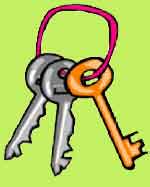
Three Key Messages
- Read daily
- Engage in literacy play
- Be a literacy role model
Literacy is an interactive process that involves mastering a number of skills including decoding and encoding, language knowledge, comprehension skills, and syntax and semantic cue knowledge (O’Malley and Pierce, 1996). As previously stated, low literacy levels often appear as a cycle within families. Since parents with lower literacy levels often do not attempt the kinds of activities that foster reading and writing in their children, those children typically do not have a model passed down for building their own literacy skills (Paul, 2002 ). GSL models ways that parents can nurture their children’s learning. Parents with low literacy skills are shown ways to encourage reading, writing, and math in their own children. This can also allow parents to recognize other people in their child’s life who may be good literacy models to encourage time spent or interaction with those outside people as well as the parent at home. Home is important, but so are other environments in which the child and parent may find themselves on a regular basis.
Each GSL program consists of 16 classes run over 8 weeks (32 hours in total). Each class is 2 hours in length. We have included 16 lesson plans that centre on various topics and focus on the three key messages of GSL.

Three Key Messages
The lesson plans included in this section are organized in the following manner:
The lesson plans are quite detailed. It is up to individual facilitators to determine how much or how little information is presented and shared with the participants. For example, if your group has many families who do not have English as their first language and have some comprehension difficulties with English, you will have to shorten the amount of verbal information you provide and instead do more interactive activities to ensure that the families understand the information. The facilitator may have to define and paraphrase certain concepts or new vocabulary words as they are introduced to both children and parents. For example, “Learning disabilities are a neurological disorder” meaning that the brain has trouble storing or remembering information. Since every group is different, we can only provide facilitators with most of the available information. It is up to individual facilitators to determine what actually gets covered in each class, depending on the group.